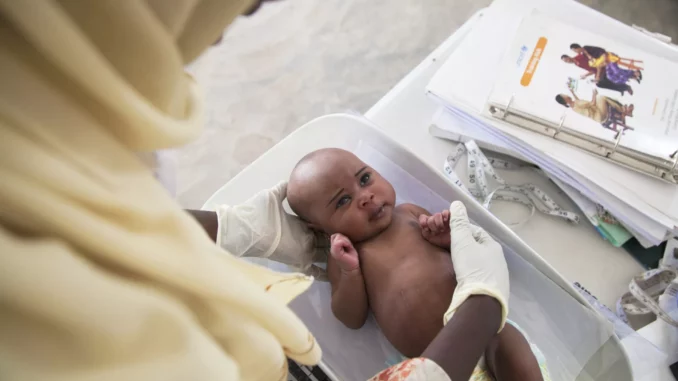
In a bold declaration of intent, the Federal Government of Nigeria has reaffirmed on Monday 06 May its unwavering commitment to eliminate AIDS in children by the year 2030.
Speaking in Abuja during a high-level stakeholders’ workshop on the Global Alliance to End AIDS in Children, Dr Adebobola Bashorun, National Coordinator of the National AIDS and STDs Control Programme (NASCP), noted that while significant milestones had been achieved over the past two decades, the final leg of the journey demands a refined and resource-efficient approach.
Bolstered by long-standing support from partners such as PEPFAR and the Global Fund, Nigeria is poised to shift its focus toward achieving universal treatment coverage for children, having already reached near 90 per cent coverage among adults.
Dr Bashorun disclosed that the government had sanctioned a $200 million allocation to bridge the funding vacuum left by the suspension of USAID support. This substantial injection of capital, he emphasised, will be directed toward bolstering human resources, strengthening health infrastructure, and investing in logistics. With Nigeria now operating an indigenous, fully functional national data reporting system, the country is gradually breaking its dependency on external partners. Bashorun also stressed the urgent need to optimise implementation models—pivoting toward scalable systems that deliver high-impact outcomes using fewer resources, a shift he said was made possible by unlocking the nation’s healthcare value chain.
Echoing this renewed momentum, Dr Modupe Elendu, UNICEF’s focal person for the Prevention of Mother-to-Child Transmission (PMTCT) programme, outlined the four central pillars of the Global Alliance—ranging from preventing vertical transmission to universal HIV testing for pregnant women. Nigeria, she affirmed, is one of 12 countries spearheading this global push. While challenges persist, the establishment of a nationwide data system and enhanced local ownership of implementation processes signal a turning tide. The workshop—convened to review the Alliance’s progress, identify service delivery gaps, and align strategies—underscored the country’s resolve to not only sustain gains but to ensure that no child is left behind in the march toward an AIDS-free generation.
